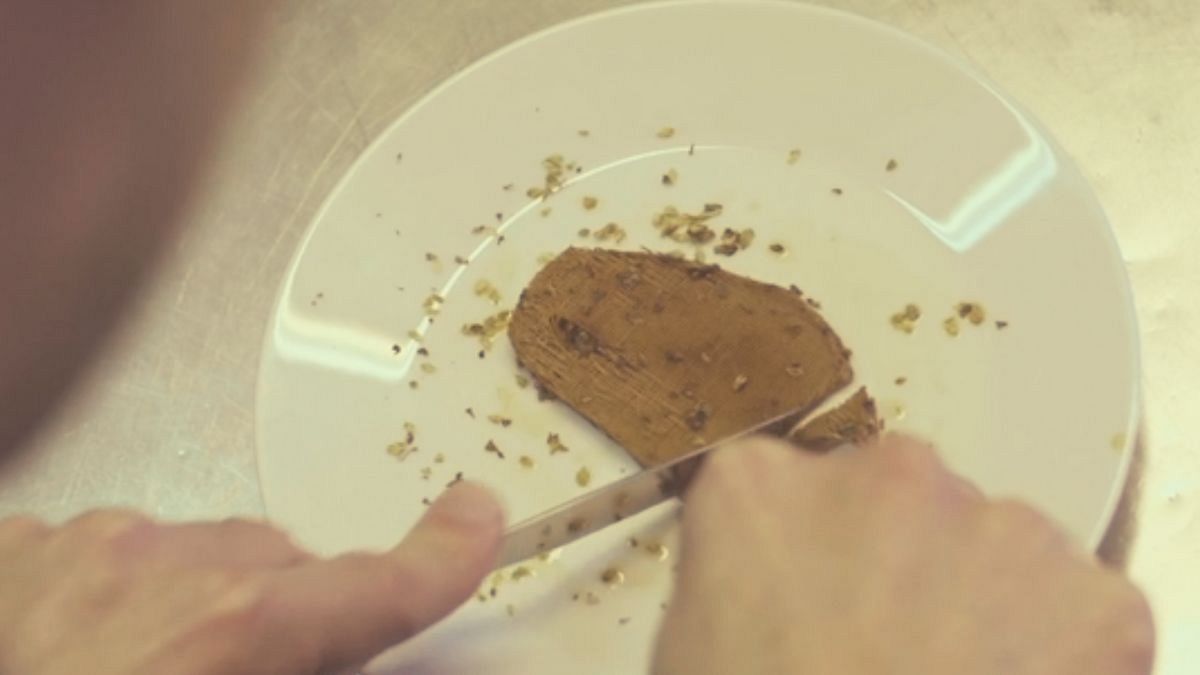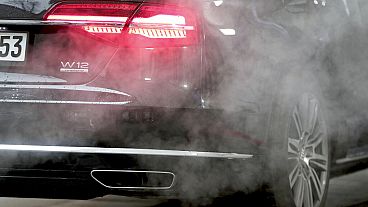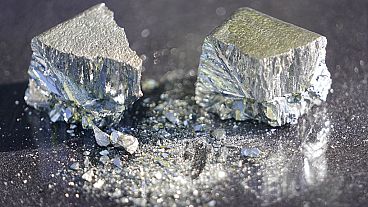Entrepreneurs from around Europe gathered at London Food Tech Week to showcase the latest in sustainable eating
The London Food Tech Week featured a number of innovations designed to tackle climate change, by making it easy to reduce meat consumption and as well as cut down on the amount of food wasted.
Brands and entrepreneurs from across Europe gathered to showcase their very latest innovations.
Printing a steak
Italian bioengineer Giuseppe Scionti is on a mission to tackle damaging emissions caused by the world's livestock industry. He’s hoping his latest invention, a bio-printer modelled on 3D printers that can replicate the fibrous texture of a steak with plant-based ingredients.
The meat-free steak created by Scionti’s company NovaMeat is made using a paste of vegan ingredients including rice, peas and seaweed.
It’s different to the mass of plant-based burgers that have flooded the market in recent months, because products like steak and chicken breast, which aren’t made of minced or reformed meat are harder to replicate in texture.
“Livestock is unsustainable, but also the global population is growing. So, there is always a need for more resources and better management of these resources on the planet," says Scionti. He’s pushing the EU to put more funding into the advancement of plant-based meat alternatives, following in the footsteps of countries like China.
It currently takes more than half an hour to print a meat-free steak, but the engineer plans to bring that time down to 15 minutes. Eventually, he envisions a future where people will use home-based 3D printers to print their own food with personalised nutritional benefits.
Scanning fruit
France-based Tellspec has unveiled a handheld scanner which is designed to help users identify allergens, nutrients and ingredients in their food before they take a bite.
The device uses reflective infrared lighting to scan fruit, and artificial intelligence to interpret the results before they’re sent to a smartphone app, so users can see exactly what they’re eating. It shows the ratio of juice, level of sugar in the fruit, acidity and vitamin C content.
"Sometimes you buy foods and you don't know if they are ever going to mature," says CEO and founder Isabel Hoffman.
"We do pineapples, for instance, pineapple is one of the hardest foods to buy. Because often you buy a pineapple, you bring it home, and it never ripens and it's never tasty. So, with information of the brix, the sugar, and the acidity, we can tell if in fact the pineapple is going to be a good pineapple."
Food waste
Start-up Karma has teamed up with Swedish appliances giant Electrolux to combat food waste.
Electrolux built a smart refrigerator that works in tandem with Karma's food waste app, so users can easily buy and collect unsold food.
Karma's app lets users browse discounted unsold food and purchase it online, while a QR code lets them open the fridge and take their food.
Stockholm-based Karma says 350 tonnes of unsold food has gone to a good home since it was founded in November 2016.
"Technology is probably the way forward when it comes to tackling the food waste issue," says Rebecca Wetten from Karma.
"It's something that It has the power to connect consumers with restaurants, hotels, cafes, supermarkets and a logistics-free way. It allows it to happen efficiently, speedily and it also makes it fun."



